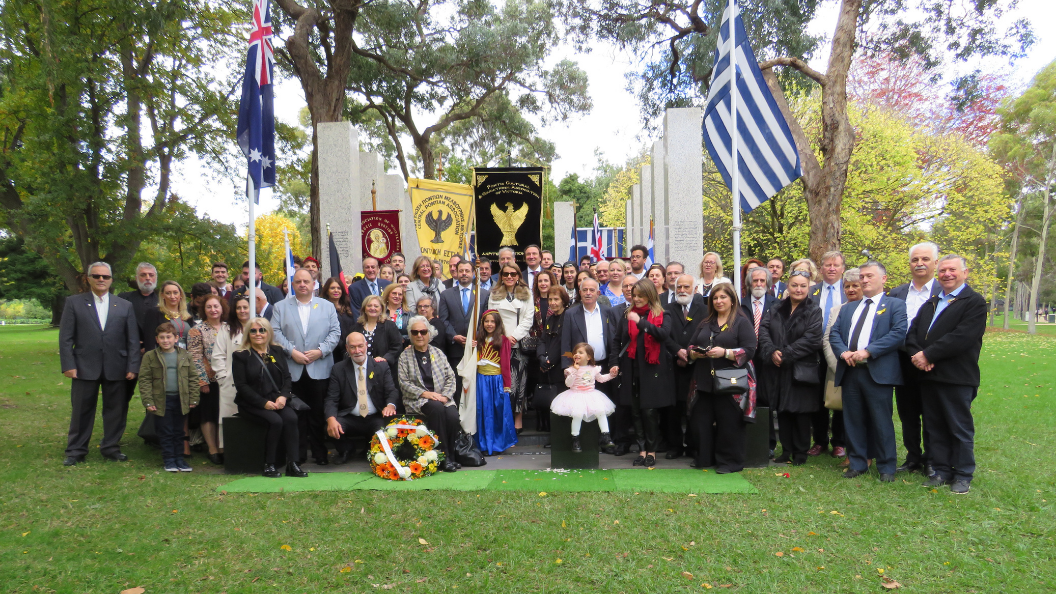By Mary Sinanidis.
“They say history has a tendency to repeat itself,” Jenny Mikakos told The Greek Herald at the wreath-laying ceremony to commemorate 103 years since the Pontian Genocide.
Ms Mikakos was one of many Greeks who gathered at the Australian Hellenic Memorial at the foot of Melbourne’s Shrine of Remembrance on Sunday. She caught the eye of President Apostolos Alexiadis, who yanked her from the back rows and propped her between Greek Consul General of Melbourne Emmanuel Kakavelakis and Greek Community of Melbourne President Bill Papastergiadis.
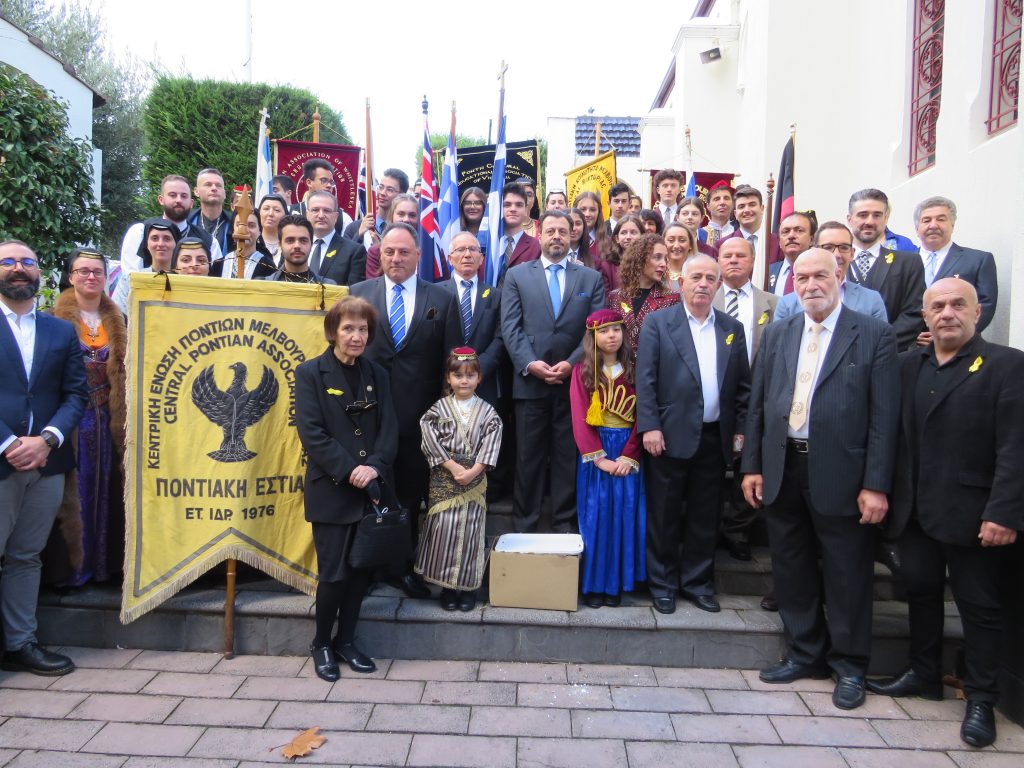
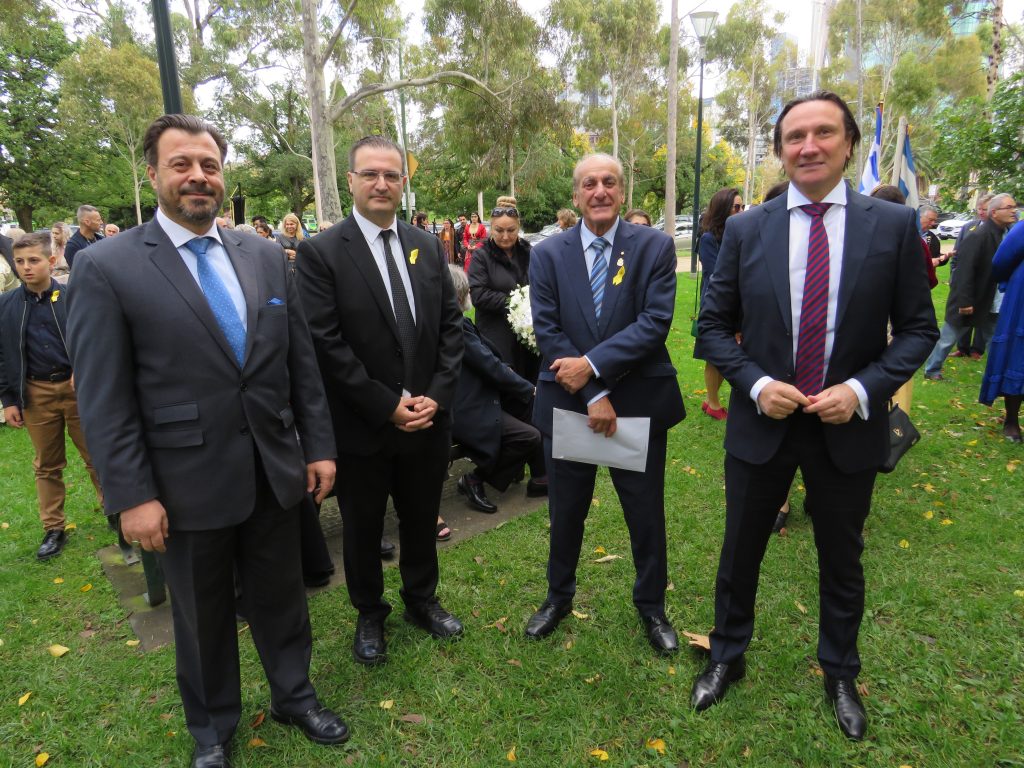
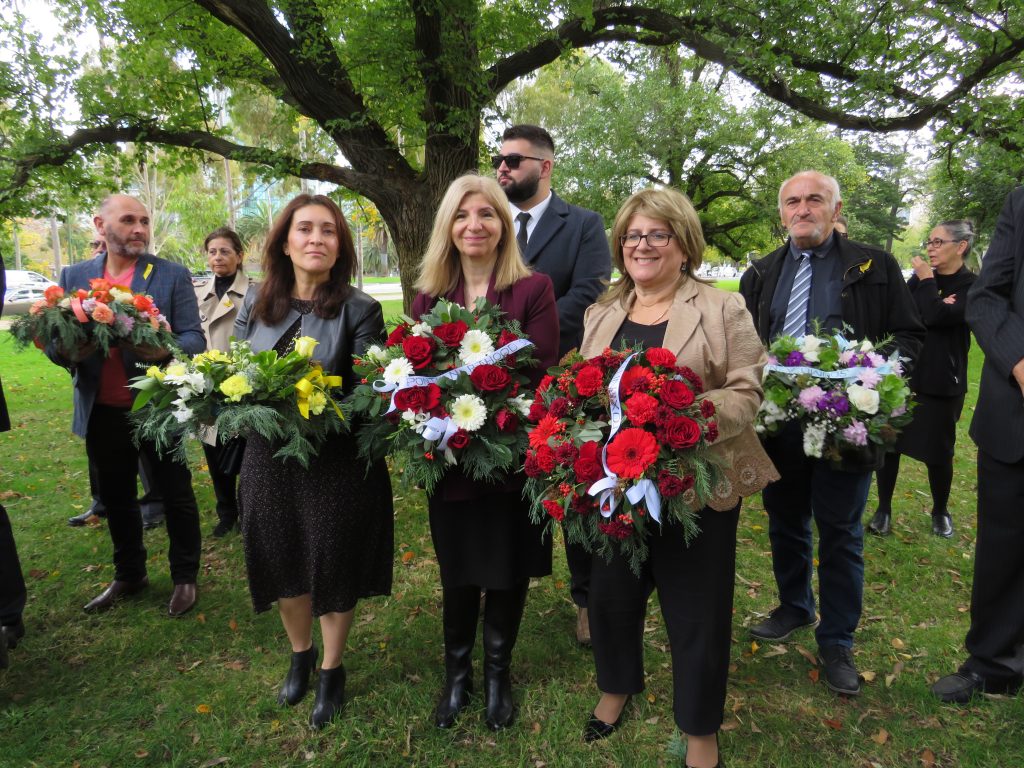
When her turn came to lay a wreath, Central Pontian Association of Victoria Vice President Yiannis Pilalidis paused the ceremony and said: “Please allow me to say that this is our Jenny. She was the first to speak in Parliament on our issue.”
Voters may be fickle, politics is forgetful, but Pontians still remember how Ms Mikakos stood up for them amid howls of derision at Victoria’s Upper House in 2006. “The Turkish Government must begin the reconciliation process by acknowledging these crimes against humanity,” she had said, her voice rising over the heckles of political heavyweights Adem Somyurek and John Eren, who have Turkish backgrounds. “Unlike Germany, which has taken responsibility for the Jewish holocaust, Turkey has never apologised to its victims.”
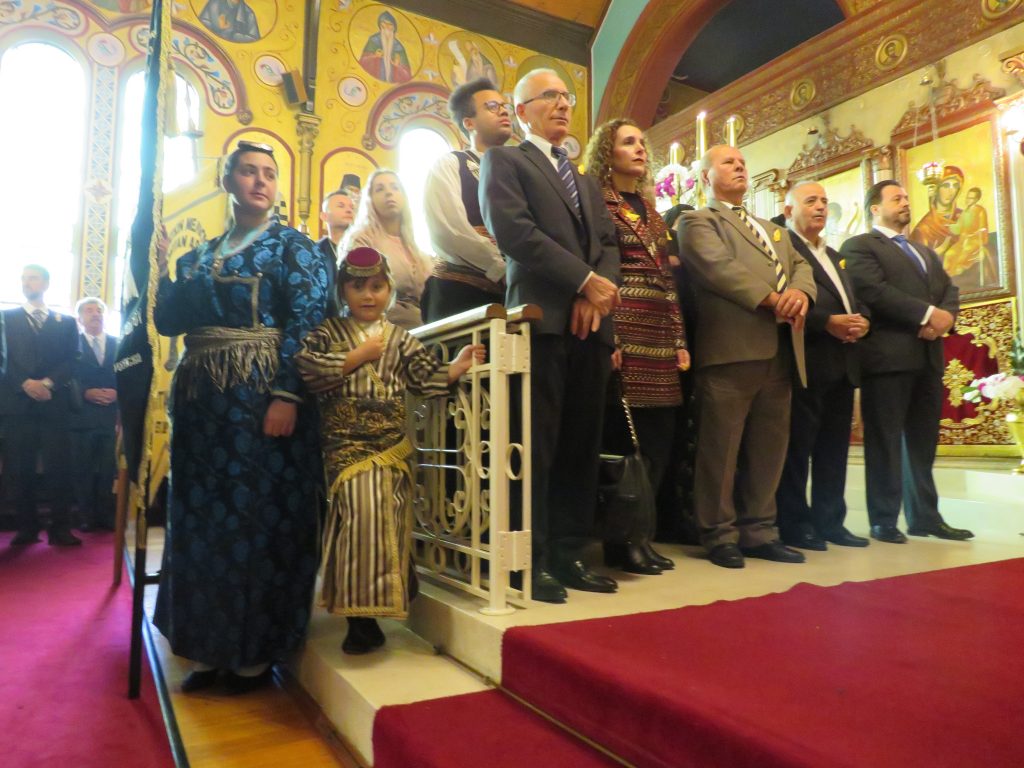
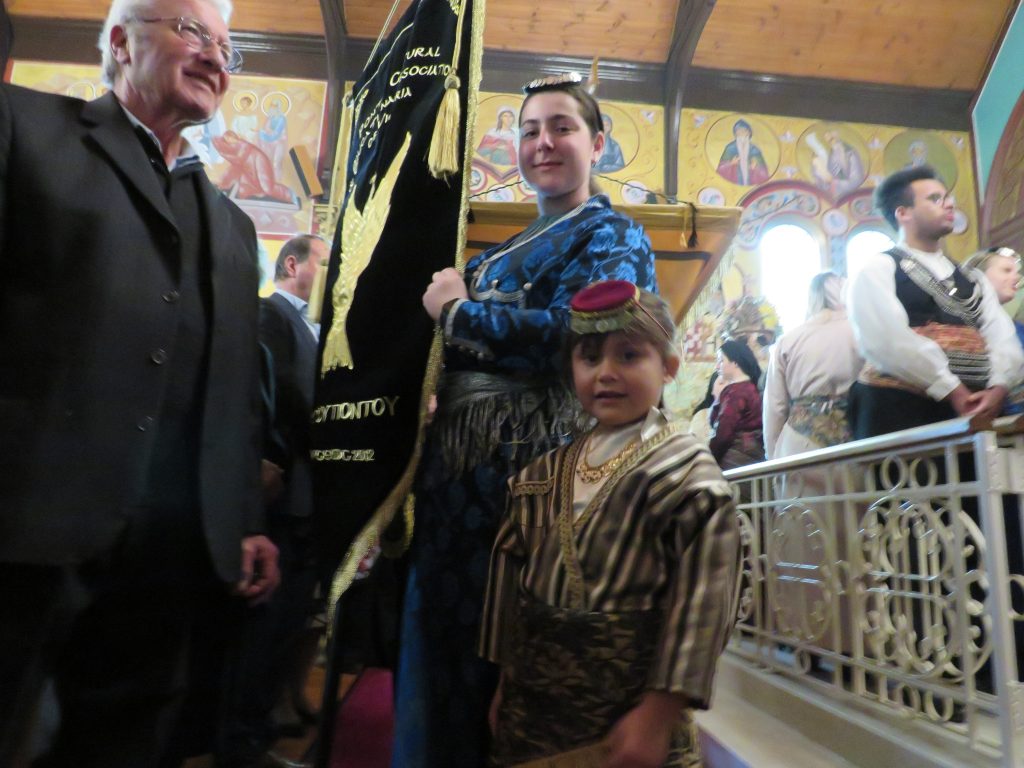
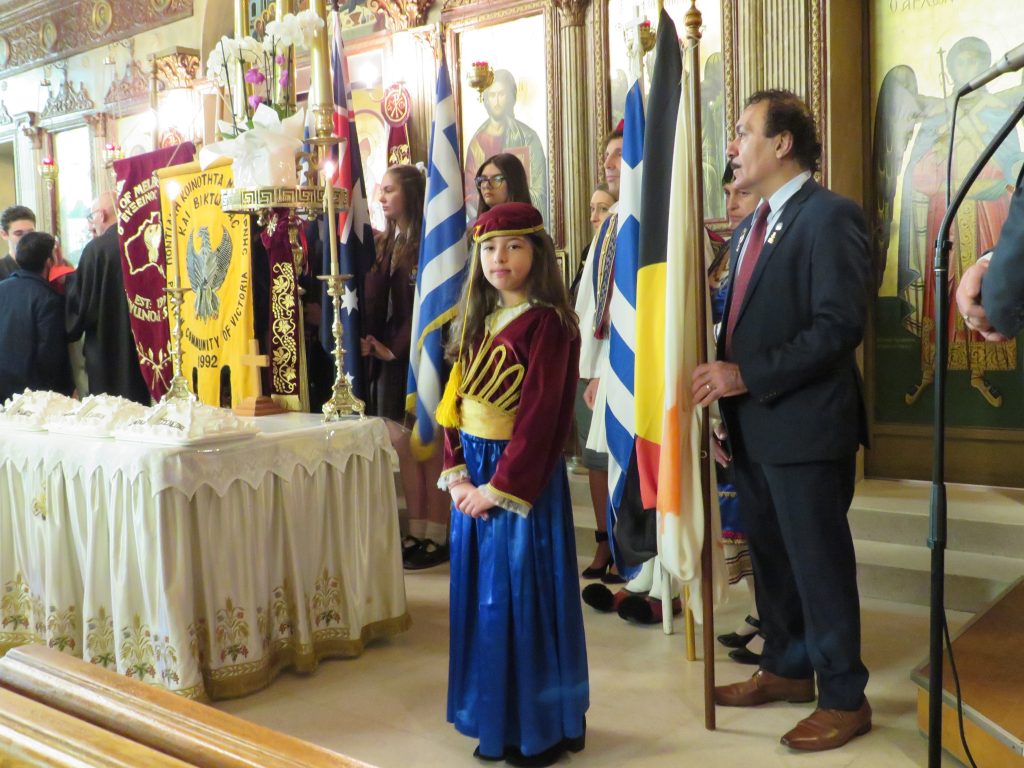
Ms Mikakos is still waiting, and so are the Pontians. “At a time when the world is seeing a genocide of the Ukrainian people take place, we can’t keep allowing the powerful to rewrite history,” she told The Greek Herald. “We must continue to both remember the victims but also to seek formal recognition of the genocide of the Pontian, Assyrian and Armenian people, in parliaments and by governments around the world, including our own.”
Kris Pavlidis, PRONIA CEO, also expressed her disappointment on the lack of formal genocide recognition. “It reminds me very closely of our local Indigenous population here in Australia,” she told The Greek Herald.
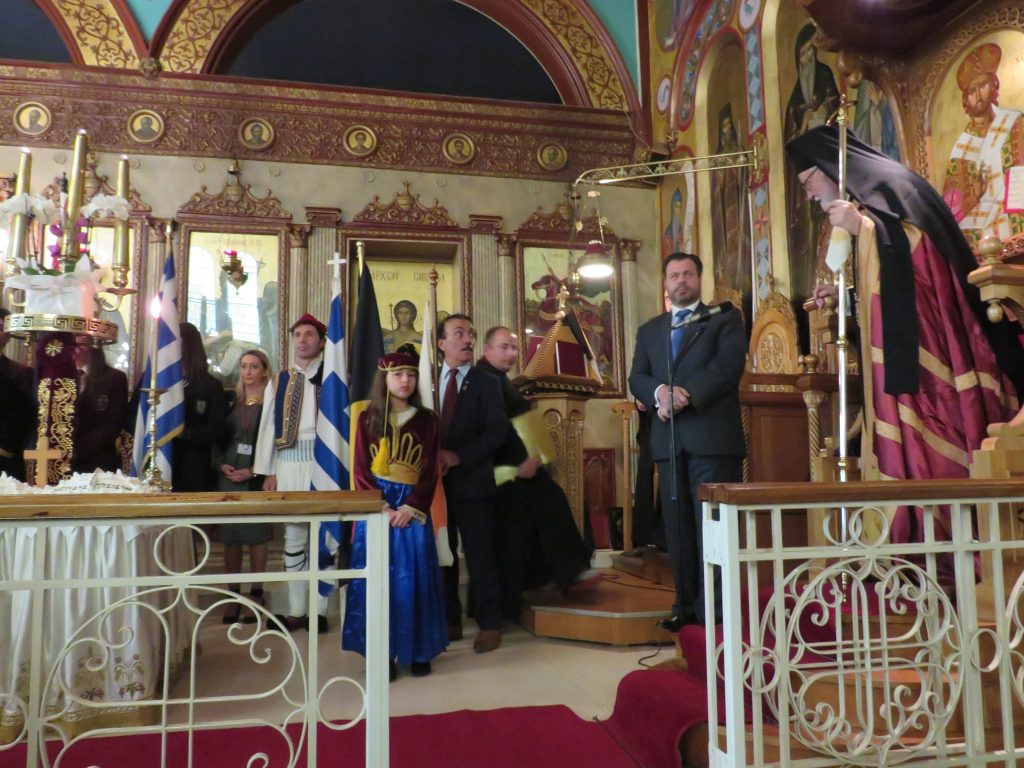
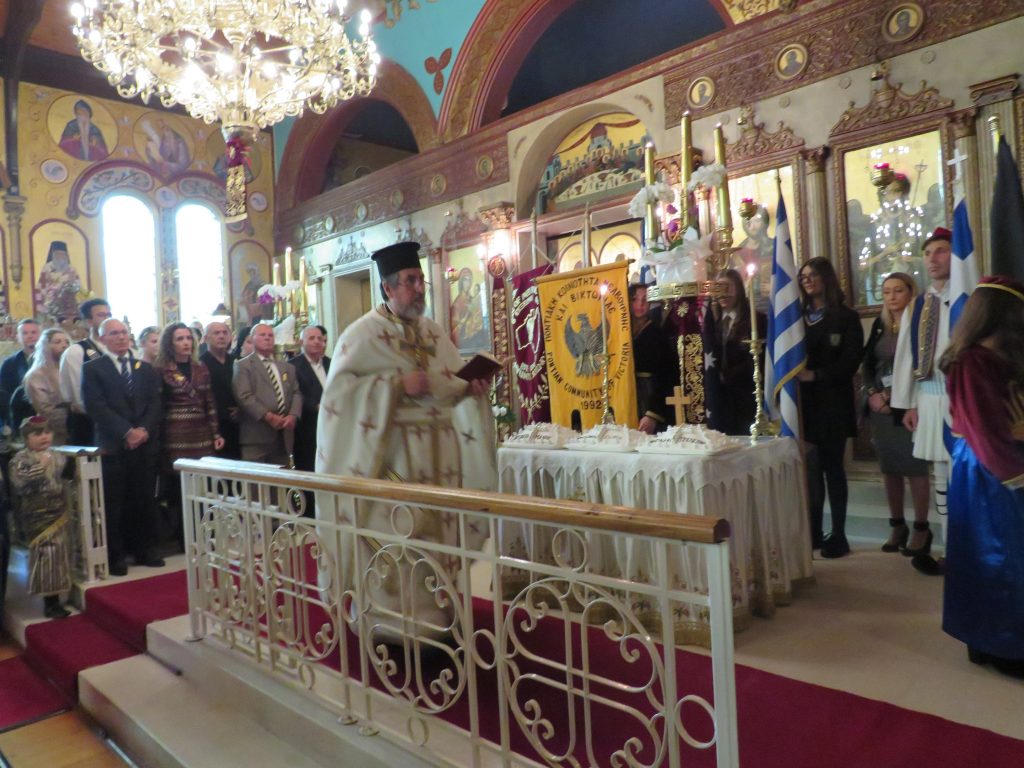
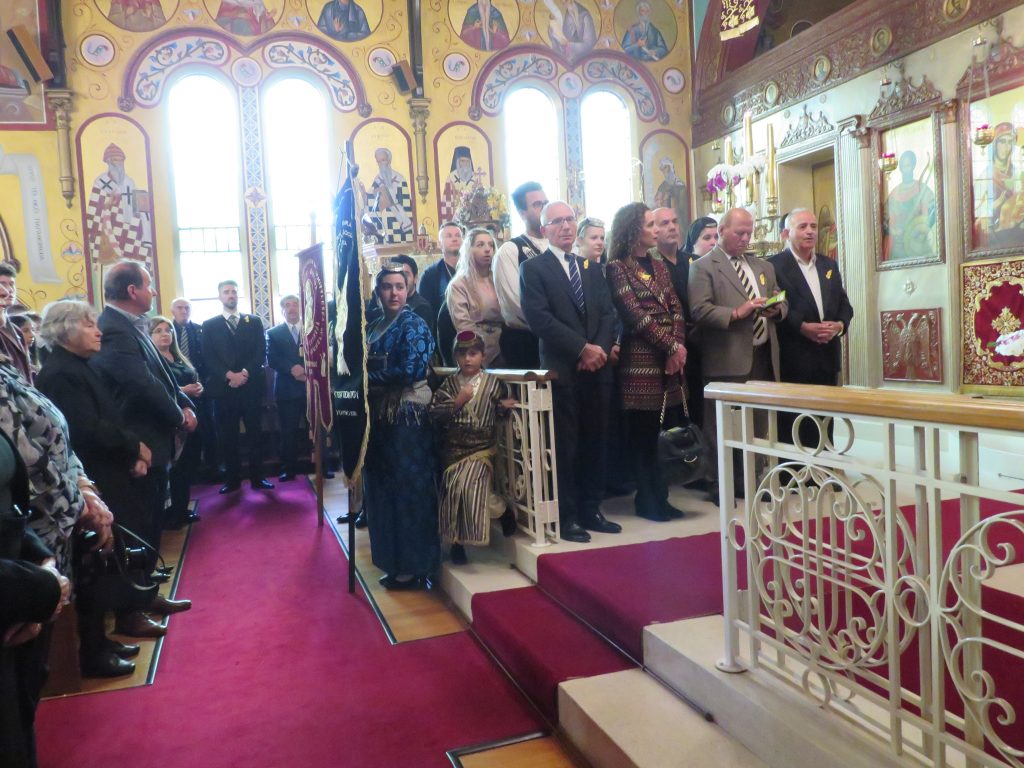
“By having these type of events, commemorative events, particularly on critical milestones such as this one,” she said, adding that it “is critical for forthcoming generations to be aware of their history”.
“Today there is a huge turnout. There is a strong foundation of support within the generic Greek community, and that’s critical. Greek Australians understand the issue, support the issue and, importantly pass it through to the younger generation,” she said.
Despite the turnout of ordinary Greek Australians, there were few politicians present at the wreath-laying despite it being an election year.
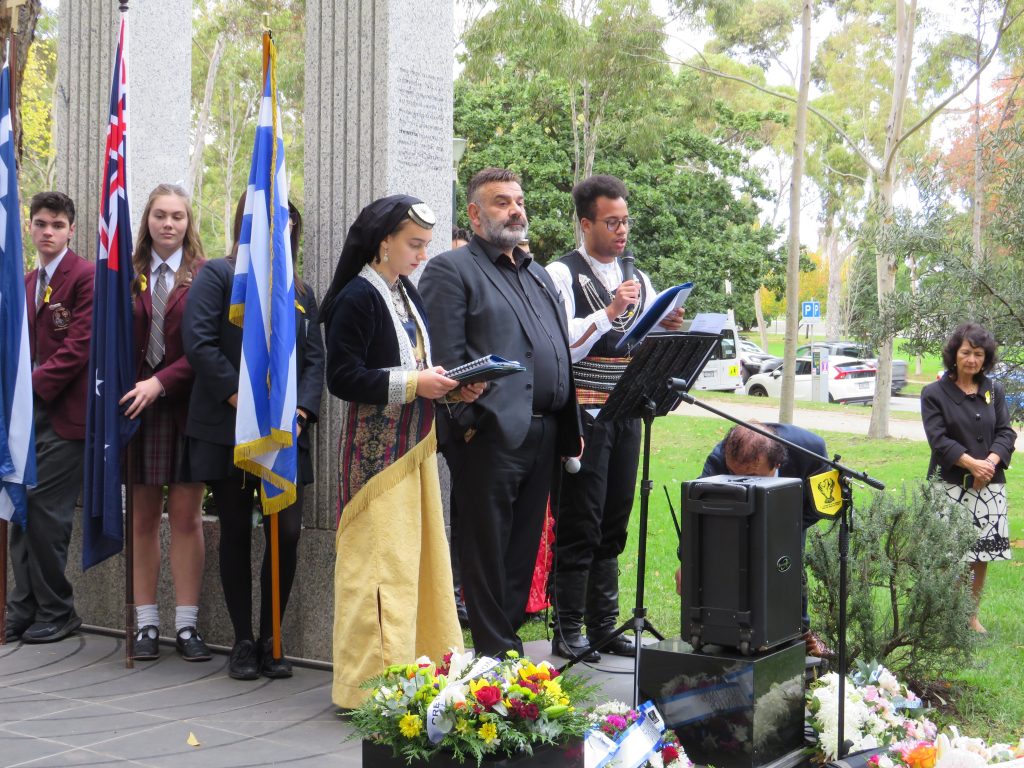
Young Pontians remember their heritage
Mr Alexiadis said there were 50 wreaths laid, making this “a good year”. “Participation is strong,” he said, particularly pleased with the number of young people present at the event.
For young Greek Australians of Pontian descent, the intergenerational trauma is real. “My dad is from Pontos, his dad is from Pontos, my pappou is from Pontos, pretty much all my ancestors are from Pontos,” Despina Vertimidis, a student from St John’s College, told The Greek Herald.
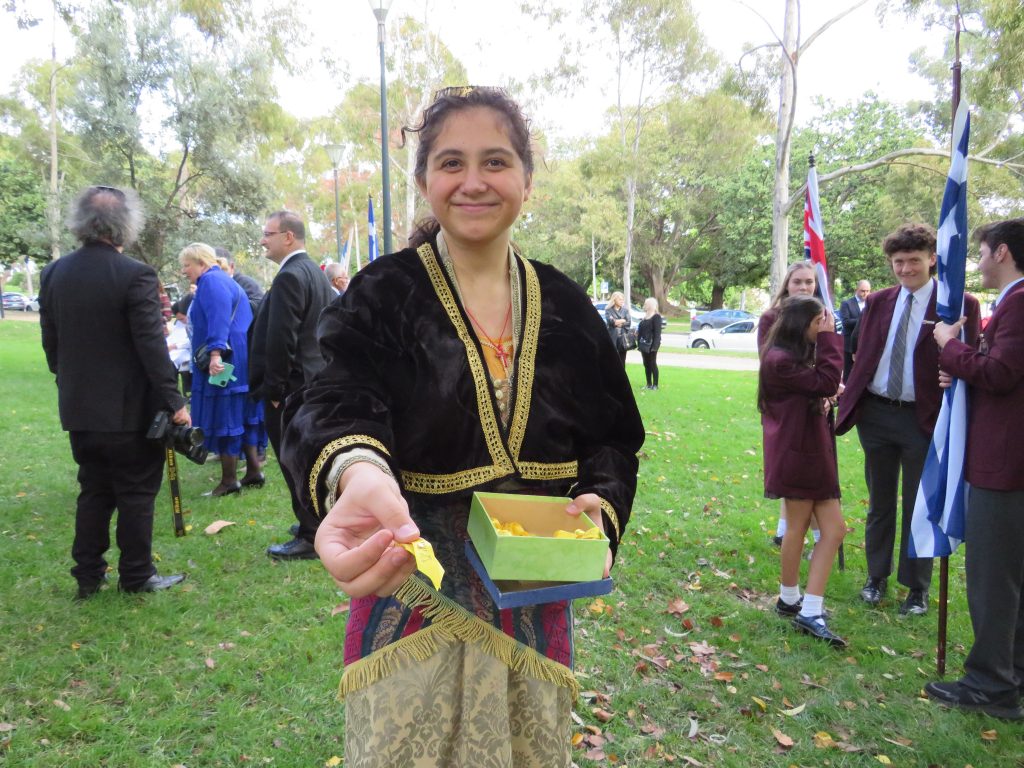
Handing out yellow ribbons to guests, she said that her participation is just a small gesture. “It is very important for me to remember my ancestors. My pappou got lost from his family. He had nine siblings but only two survived. He got separated from his parents at the age of three and they didn’t find him again until he was eight. I feel for him. I can’t imagine how scared he must have been, alone in an orphanage and not knowing what would happen. It’s important for me to remember where I came from.”
Myrto Makridi, dressed in a Pontian traditional costume, said she had relatives who died during the genocide. “I wouldn’t be able to tell you their names,” she told The Greek Herald. “Everyone here has someone in their lineage who was part of the genocide one way or another. It is important for us to be here.”
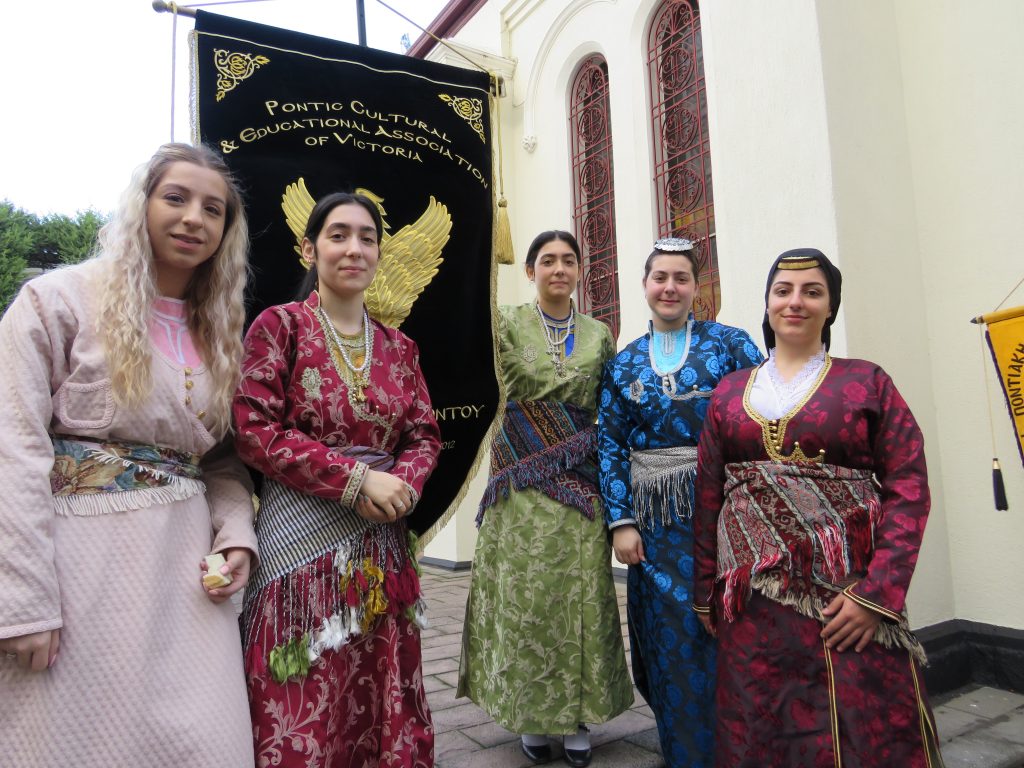
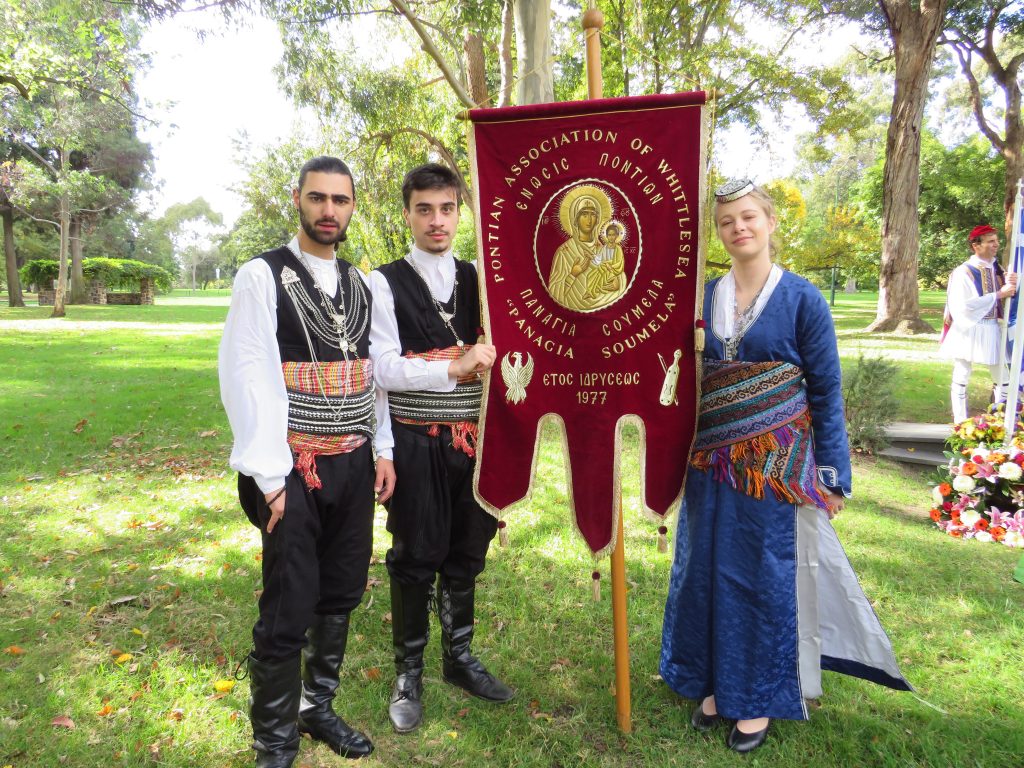
Jacob from the Panagia Soumela Club in Whittlesea said that Pontian youth are kept together by their culture. “Dancing is a big part, as it helps us to interact,” he said. “We have dance lessons every Tuesday and Sunday.”
Even youth of non-Pontian descent see the importance of rallying by the Pontian community to show support for the victims of genocide. George Dimitropoulos from Oakleigh Grammar said, “We’re here for the Pontian genocide and it’s important to remember all those people who died.”
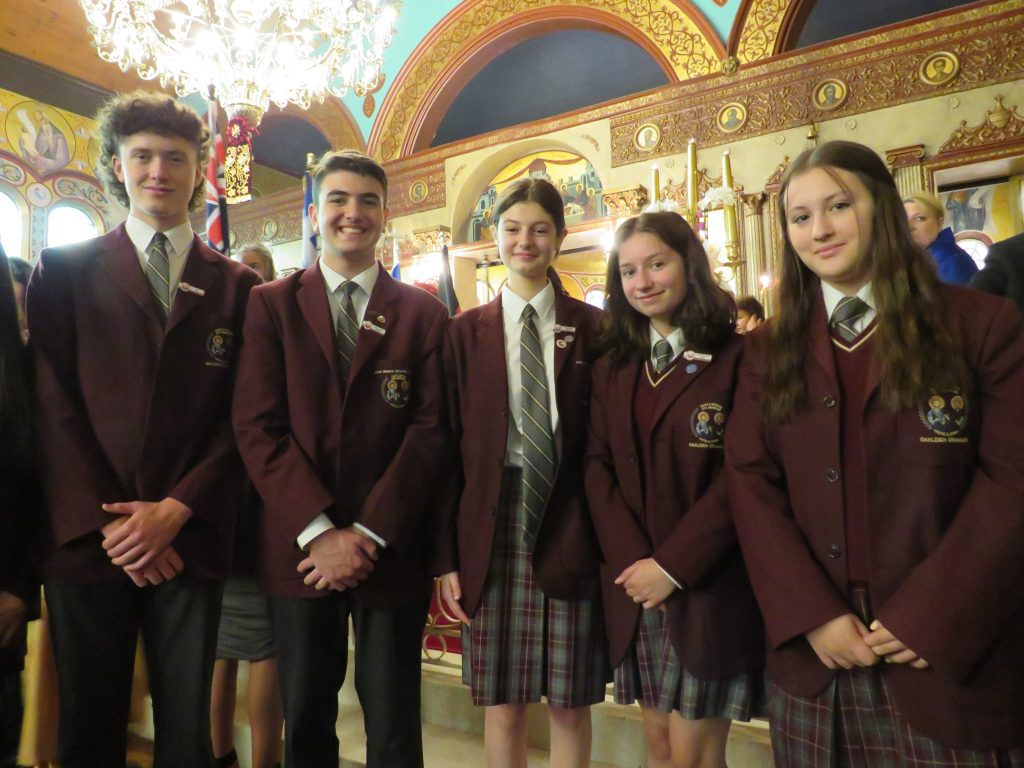
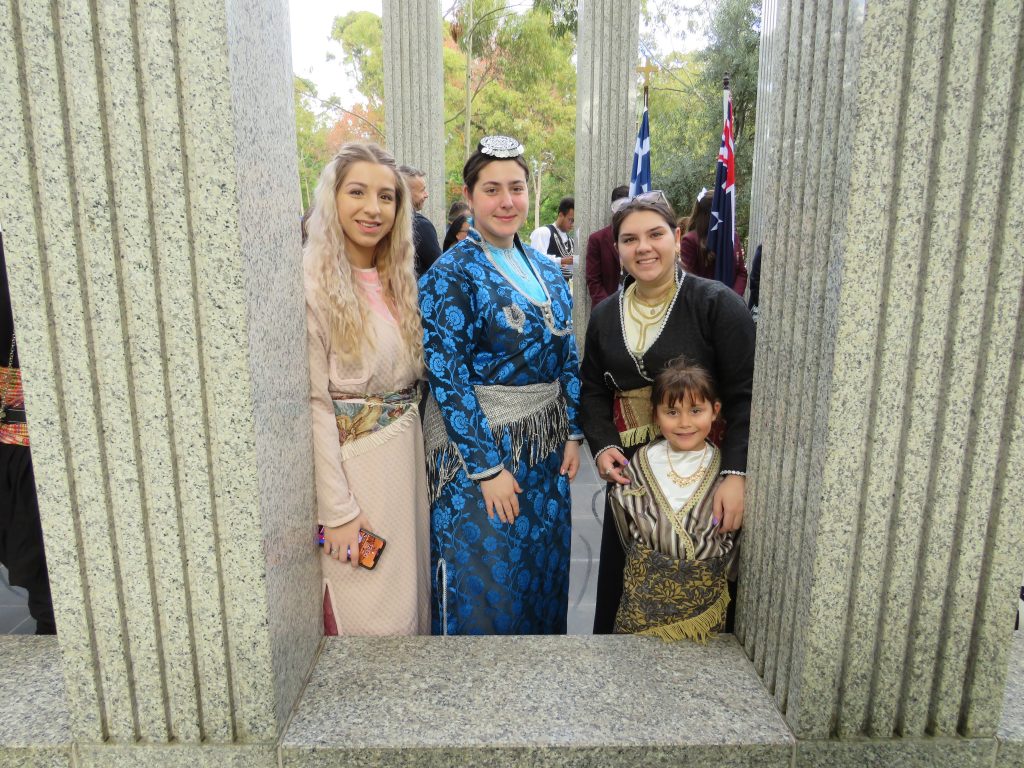
Simela Stamatopoulos, President of the Australian Federation of Pontian Associations (AFPA), said efforts for international recognition for the genocide will not stop.
“We should never forget the terrifying displacement, threats, slaughter, deportation, execution, looting, rapes, death walks, work camps, forced Islamisation and other atrocities. All these were the result of the Turkish state’s strategy towards its own citizens,” she said.
“Despite working towards the goal of full annihilation (of Pontians), the survivors of the slaughter brought blessings to the new lands they treaded on because through their hard work, perseverance, filotimo and ingenuity, they managed to build castles in the sand.”
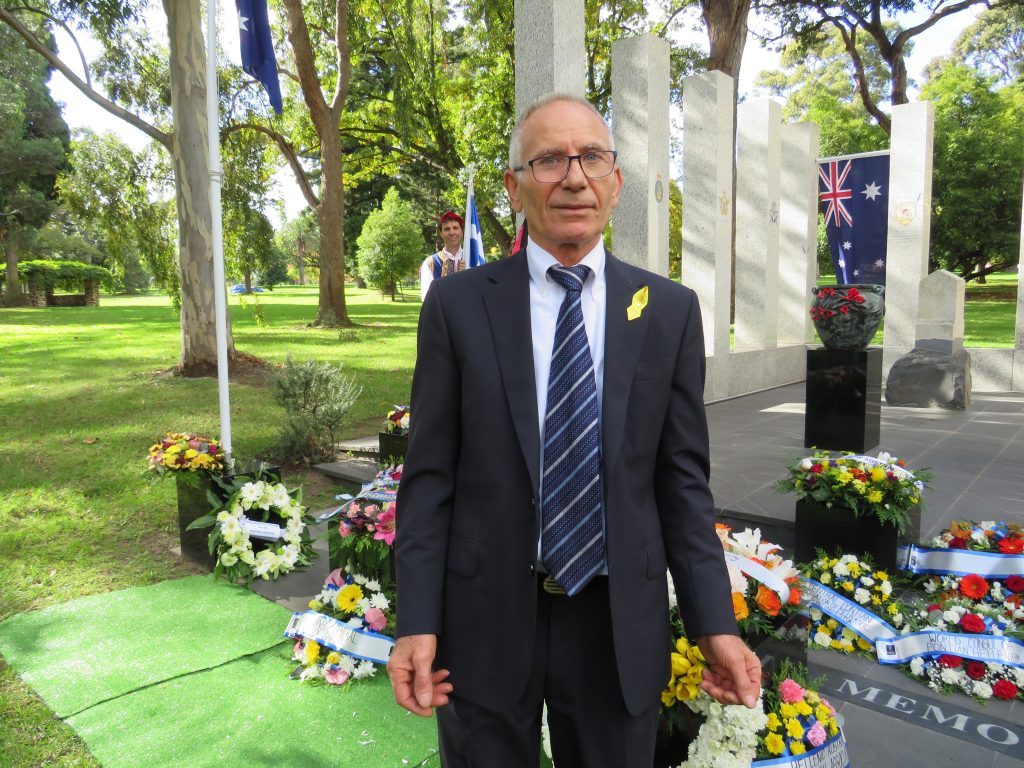
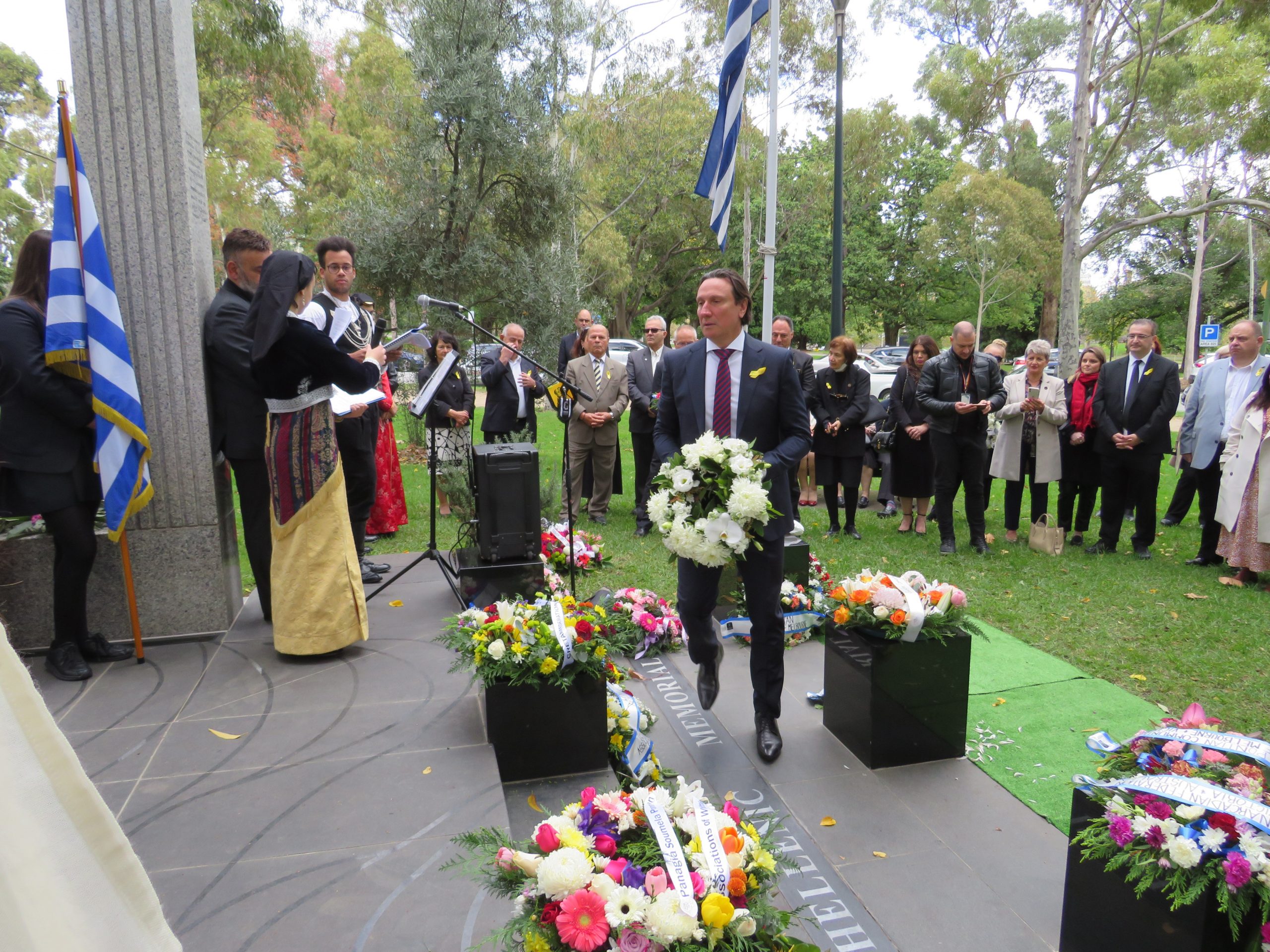
Greek Consul General of Melbourne, Emmanuel Kakavelakis, said, “I am here in front of you today because in February 1994, the Greek State performed its integral duty, which, for various reasons, had been delayed for decades, and Greek Parliament unanimously recognised the Genocide of Pontian Greeks.”
Thanks to this ratification, 19 May has been designated as the official Pontic Greek Genocide Remembrance Day to remember the 1.7 people affected by the slaughter, uprooting and executions which took place from 1913 to 1922 during the final years of the Ottoman Empire.

